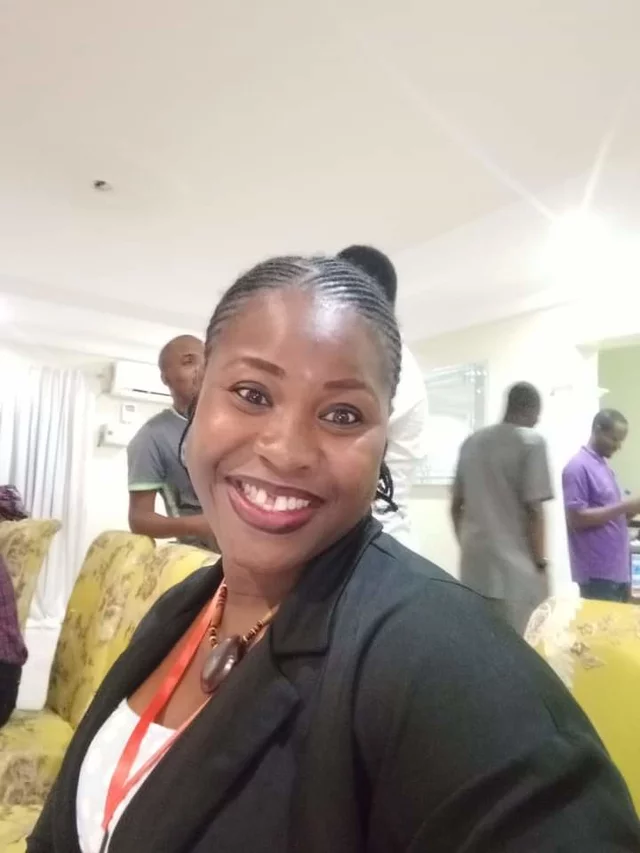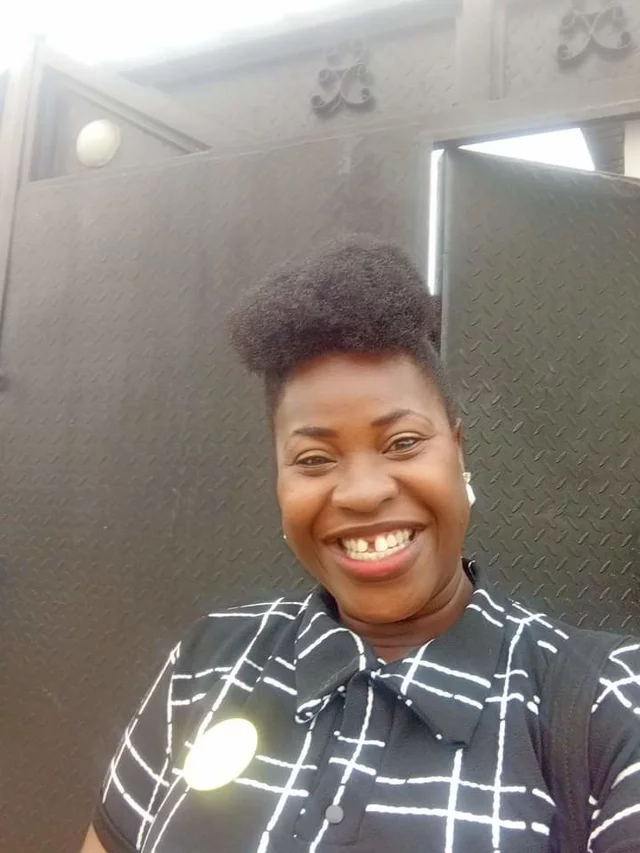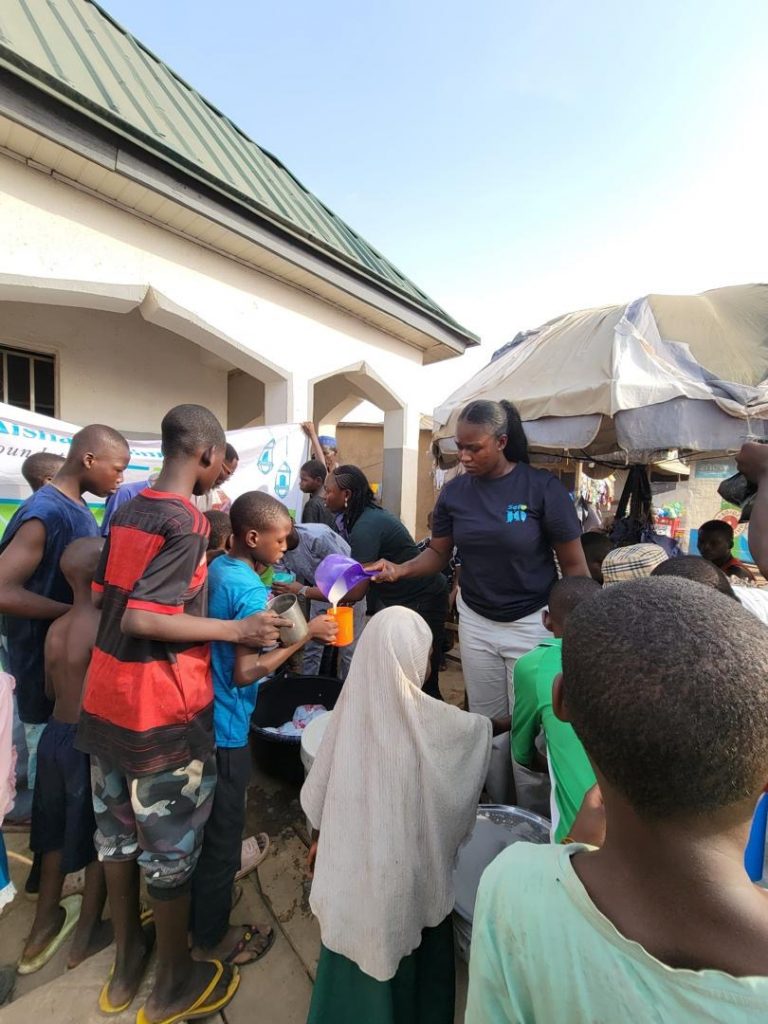
Keep up with latest news and be part of our weekly giveaways and airtime sharing, follow our WhatsApp channel for more update. Click to Follow us
Oluwatobi Raji, an educator and humanitarian who has experienced many acts of sexual assault and homelessness, has shared her story of overcoming victimisation to become an inspiration to others.
The co-founder of the School on the Street Initiative and child safety advocate shared in a recent interview with PM News that her traumatic past—which included abuse at the hands of her maternal uncle beginning when she was eight years old and assaults by ten different people until she was nineteen—caused a troubling period of drug abuse, low self-esteem, and mental health issues.
“When I was age eight, I was sexually assaulted by my maternal uncle and it didn’t stop there, it went on until I was age 15 and from age 13 to 19.
“I had multiple counts of rape by 10 different persons so all these encounters contributed to my low self esteem, it contributed to me going into alcohol, taking marijuana, having depression, PTSD, having multiple suicide attempts and when all these were going on, I was doing fine at school.
“All of a sudden, my level of performance at school dropped due to this recurrence. There was a particular time of my life that I was homeless. I was practically living on the street under people’s containers for three months and I encountered another form of sexual violence and it happened with me being with touts.
“I was influenced. I was just exposed to all sorts of negative lifestyles due to being on the street,”Raji said.
Raji’s horrific experiences drove her onto the streets, where she came with further abuse. Her mother’s search for possibilities overseas and her father’s abandonment following his death created a volatile upbringing that left her yearning for friendship and love, which frequently ended up in the wrong hands.
“My being on the street is as a result of abandonment. I was a teenager when I lost my father and my mom sought for greener pastures in another terrain (country).
“Myself and my siblings, we lived with someone (a family friend) at the initial stage of my mother’s relocation so it affected us. As a young girl, I wanted more in life for myself and my younger siblings. Also as a young girl, I was seeking for love — wanting someone that could help and I was always falling into the wrong hands so that was what led me into the street.
“One of those days, we lived with a family friend who sent myself and my siblings out of her house at 10pm and we had to trek from Meiran to Agege to another family friend’s place. On getting there, they have a rule in their house that you don’t come uninvited and even if you are a family, you can’t stay more than 2-3 days whoever you are. I have to appeal to the family friend that they should let my siblings stay, I will find my square roots so that led me into the street as well”.
Raji’s horrific experiences drove her onto the streets, where she came with further abuse. Her mother’s search for possibilities overseas and her father’s abandonment following his death created a volatile upbringing that left her yearning for friendship and love, which frequently ended up in the wrong hands.
“In the course of how to get out of the street, I got out of the street through the support of a friend I met on the street.
“He was a friend who was like “You are too beautiful to be here, how can you be sleeping on the road? I’ve been watching you for some time”. So I narrated my story. He told me to come home with him and that he stayed with his parents though he was a polytechnic student.
“Seeing someone who offered you shelter and a young girl seeking acceptance, love and friendship, I accepted. I didn’t know him but he was someone willing to take me in. I accepted and he showed me to his mum.
“Of course, there was no spare room except his room. And I became vulnerable again. And in the course of that, he startedto propose to me but I told him that that was not why I was there. But he was the one feeding me. He provided clothes for me. He and his mother were taking care of me. But he started abusing me sexually. It wasn’t something I wanted but I got used to it since he provided shelter.
“Years down the lane, I have realized there are still good and genuine friendships who will not attach relationship or immorality to whatever help they render to you.That was how I got out of the street. When he resumed back at school, I had to follow him. Even at that, he still had numerous girlfriends so I became a figurehead and his sex toy.
“One day, he told me ” how do you think I’ll just take you into my house without getting anything? What’s my own gain?”.
“Then I told him I was leaving. He asked how I could do that since I had nobody. I told him ‘Yes, I have nobody, I have nowhere to go’. But I stood up for myself”.
Since healing is a process that takes time, Raji highlighted that getting professional assistance, talking to mentors, and speaking up were essential to her efforts to take back her life. Her life-changing event motivated her to support mentorship and child safety, with the goal of uplifting those who have experienced comparable trauma.

“Healing is a gradual process, not just instant. If I am telling you that I’ve forgotten everything, I’m lying. It is a process. Nothing happened suddenly because what happened was a process. It graduated into several negative lifestyles though I’m able to shed them off. But it was a gradual process. I didn’t stop smoking and alcoholism one day.
“It started from a foundation, something ignited it. When I stopped, it didn’t just stop. It was a gradual process. Stopping marijuana intake also was a gradual process.
“How did I help myself to enable me to have the right thinking? I sought help. I knew I needed help. I sought professional counsel and I got into contact with a psychologist and I didn’t stop at that therapist. I had mentors who understood where I was coming from. I spoke out.
“Best thing that ever happened to my healing journey was my speaking out, telling my story not to shame my family but to encourage somebody who has gone through that journey that there is more to life.
“I engaged in campaigns, advocacy I had mentors who were doing what I was doing. Intentionally, I became a mentee to a few genuine advocates that I know were doing the right thing. Whenever I go out or engage in interviews, there’s always a flashback but I’m relieved that I spoke out,” Raji narrated.
Raji further disclosed that she finds motivation in the narratives of well-known individuals such as Pastor Tinu Akinlawon and Joyce Meyer, who are fellow survivors who made meaning out of their suffering. Her zeal for activism and her conviction that achievement is the ultimate retaliation against the trauma’s darkness remain unwavering.

“What makes other people die in shame is the lack of speaking out. They will be wanting to take silly revenge. For me, the only revenge that is left is success. When you are successful, when you are no more in that pain of thinking evil.
“I read books about Joyce Meyer so I got to know about her, her story and how she was abused by her father. Then I got to know about Pastor Tinu Akinlawon. She’s a Nigerian who was defiled by her father. These are women of virtues who have grown past their pains and trauma so this gives me hope that if they can then I can,” Raji added.
Please don’t forget to “Allow the notification” so you will be the first to get our gist when we publish it.
Drop your comment in the section below, and don’t forget to share the post.







